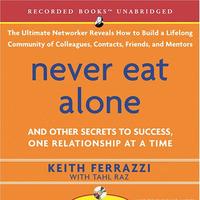20. CHAPTER 3 - Step Three: Create a Personal "Board of Advisors"
It was time for me to establish a new goal.
Should I seek out another position as chief marketing officer, proving myself by building bigger and better brands, striving for greater revenue (and profits), and helping to turn a company into a brand icon? Or should I set my sights even higher? My ultimate goal was to become a CEO. But it seldom happens for those in marketing. I had spent the greater part of my career convincing top management that marketing can and should directly influence all operating activities, yet I was not responsible for all of them. To truly define the brand, the ultimate marketing job was to be the CEO.
If I chose the latter direction, what else did I need to learn to become CEO? What were my chances of getting such a job? What sacrifices or risks were involved? Honestly, these questions weren't clear to me at the time.
In the wake of my disappointment, after years of go-go-go, I felt lost. I needed to figure out what I wanted to be all over again. And I was scared.
For the first time in ages, I had no company to attach to my name. I loathed the thought of meeting new people without a clear explanation of what I did. Over the next few months, I had hundreds of conversations with the people I trust.
I took a Vipassana meditation retreat where I sat for ten hours each day for ten days straight—in silence. For a guy like me, who can't shut up, it was torture. I wondered if I might fritter away all my time thinking. I wondered if I should go back to Pennsylvania and find a smaller pond to inhabit. During that time I wrote a detailed twelve-page mission statement asking such questions as What are my strengths?
What are my weaknesses? What are the various industry opportunities available to me? I listed the venture capitalists I wanted to meet, the CEOs I knew, the leaders I could turn to for advice, and the companies that I admired. I left all my options open: teacher, minister, politician, chief executive officer. For each potential new direction, I filled out a Networking Action Plan. When everything was laid out, I reached out to my personal board of advisors.
I didn't have the qualifications to be appointed a CEO with a major corporation. Yet when I looked inside myself, that was exactly what I wanted to do.

